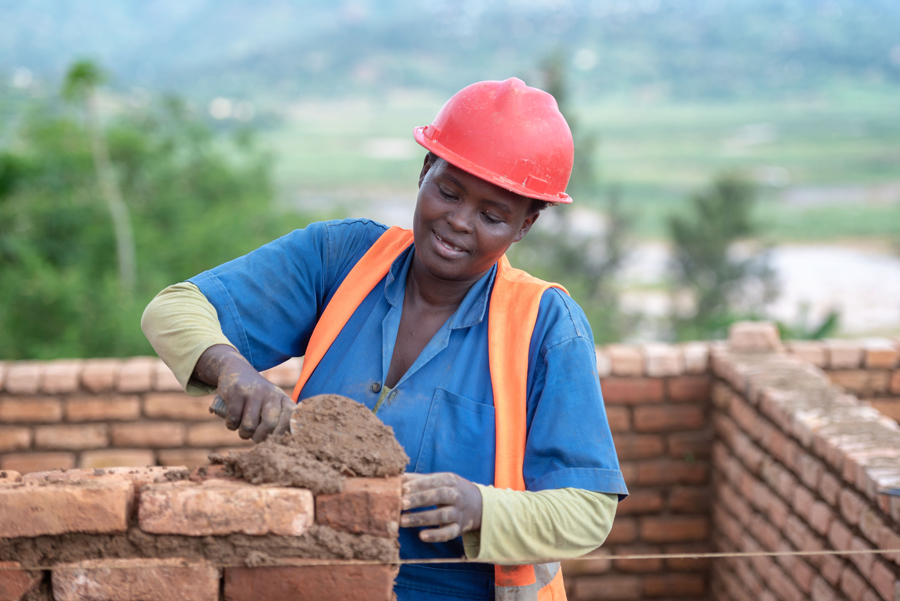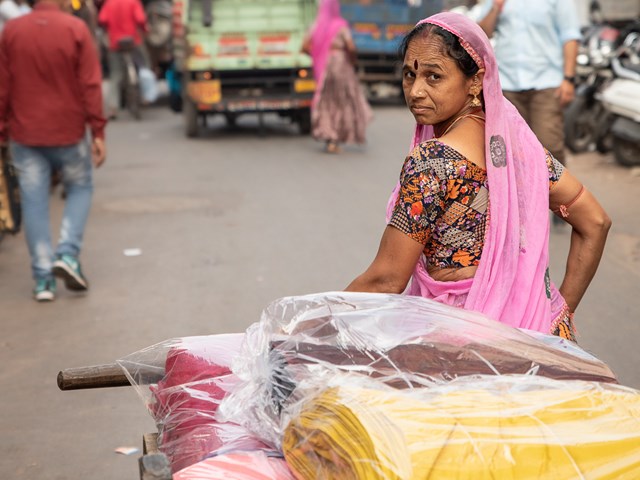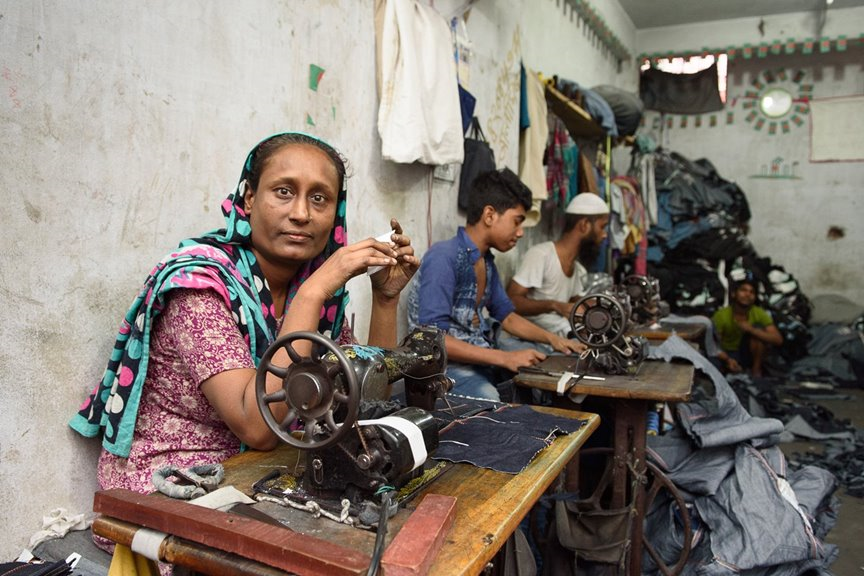
A summary
Mondiaal FNV is committed to a world in which everyone can be themselves and workers of all genders have equal opportunities and rights. In this document we present a summary of our gender strategy 2021-2025. How do we work on gender equality in trade unions and in the workplace?

As reported by the International Labour Organization (ILO) in 2022, all over the world, women find it more difficult than men to find jobs; even where they do, they end up in precarious working conditions. ILO’s current global labour force participation rate for women is just under 47%. For men, this is 72%. Women continue to have fewer rights than men in the workplace. They are more likely to be dismissed, are less likely to be given a contract and often do not have a good social safety net, for example if they work in the informal economy.
The COVID-19 pandemic of 2020/2021 has increased the already existing socio-economic inequalities in most societies, including gender inequality. Women have lost their jobs and income, and they are heavily burdened with unpaid care and household chores. They have also found themselves increasingly being pushed into informal work, with the result that their rights are disregarded and violated even further. The widespread increase in domestic violence during the pandemic – across countries and continents – has also heavily impacted women in the past two years.
According to the latest World Bank figures, women represent almost 40% of the paid workforce worldwide and women’s membership in the International Trade Union Confederation (ITUC) averages 42.2%, according to the ITUC Gender Equality Survey 2017. However, women are still significantly underrepresented in leadership positions. In fact, in the highest decision-making bodies of ITUC-affiliated unions, only 28% of members are women.
Our basic principle is: ‘Women will be attracted to membership if they see that unions work for women in practice, addressing their issues and representing them effectively. And women want to play an active role in a union that is open to female union leadership’.
SDG 5: Achieve gender equality and empower all women and girls
Our partners encounter many challenges in their efforts to achieve gender equality. They often lack knowledge about how to involve women in trade union work. Women attend meetings but tend not to voice their concerns or opinions. And women in leadership positions often lack influence and power. In order to attract women, it is important that they are able to identify with the trade union movement.

Our partners encounter many challenges in their efforts to achieve gender equality. They often lack knowledge about how to involve women in trade union work. Women attend meetings but tend not to voice their concerns or opinions. And women in leadership positions often lack influence and power. In order to attract women, it is important that they are able to identify with the trade union movement.
Together with our project partners we strive to achieve:
In bringing our gender-related ambitions to fruition, we first and foremost look into our role as a Trade Union Solidarity Support Organisation. In that capacity:
The approach will be context and union-specific and should leave room for trial and error. Together with partners, Mondiaal FNV will assess which measures are already in place, and partners will set priorities regarding measures to be taken for the following year. Continuous progress is required throughout the whole project period, and new targets will be gradually added.
Mondiaal FNV will also strengthen gender awareness, sensitivity and capacity amongst its own staff.
Furthermore, Mondiaal FNV also promotes trade union and workers’ rights within the Netherlands and at the international level, often in close cooperation with our partners. For some years, Mondiaal FNV has actively promoted the new ILO convention on Violence in the Workplace (C190). In the future, we will make sure that we mainstream gender in our other lobby and advocacy work, and that we are more active in promoting the rights of working women.

Meld je hier aan voor onze nieuwsbrief
en ontvang maandelijks nieuws en verhalen van Mondiaal FNV.
De FNV gebruikt functionele cookies die noodzakelijk zijn om de websites zo goed mogelijk te laten functioneren. Daarnaast maken we optioneel gebruik van statistische en marketing cookies. De functionele en statistische cookies maken geen gebruik van persoonsgegevens. De marketing cookies worden gebruikt voor het personaliseren van advertenties. Onderstaand kun je toestemming geven voor het gebruik van cookies. Voor meer informatie, of om op ieder moment je instellingen weer te wijzigen, kun je terecht op onze pagina over de cookies.
Statistische cookies
:helpen ons te begrijpen hoe bezoekers onze website gebruiken (paginaweergaven, klikgedrag). Deze gegevens worden anoniem gemeten en gedeeld met drie externe partners.
Marketing cookies
:worden gebruikt om onze diensten via online advertenties onder de aandacht te brengen. Bij acceptatie van marketing cookies delen wij je persoonsgegevens met vier externe partners voor retargeting en advertentiepersonalisatie.